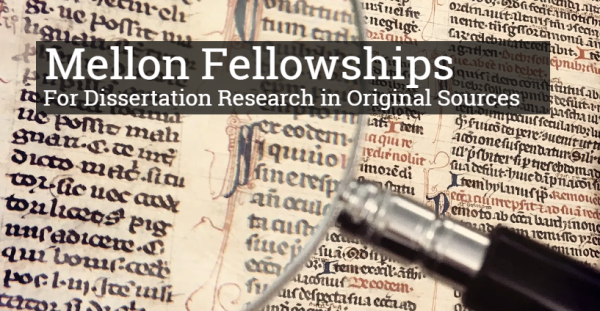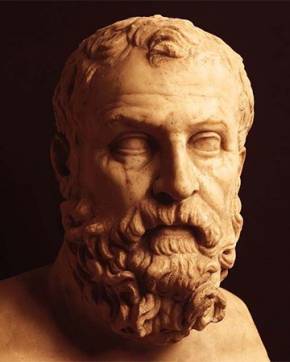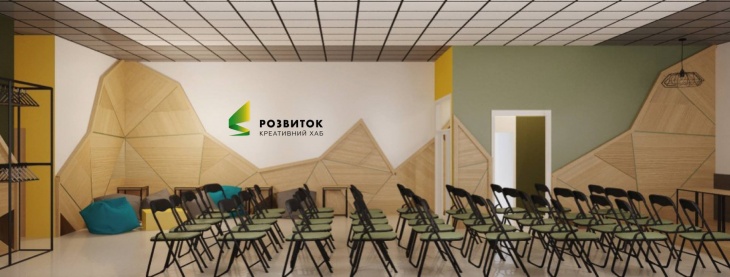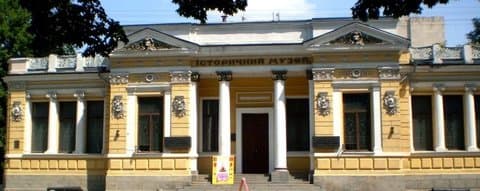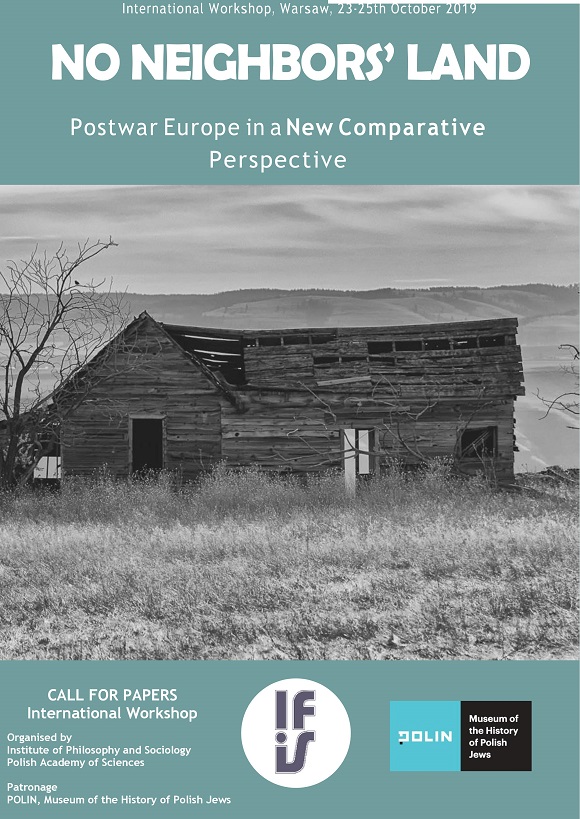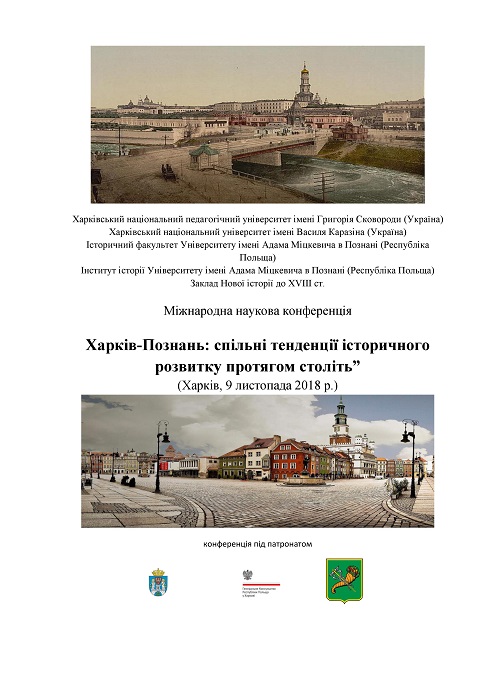Оголошення
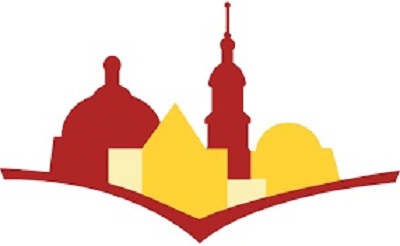
The residence grants are offered to researchers of various fields in the humanities from different countries. We especially encourage historians, culture studies scholars, and anthropologists. We welcome applications for research that offer broad interpretations of urban history as a discipline at the intersection of various approaches of humanities and social sciences. The chronological and geographical frames of the proposed research are limited to the 19th and 20th-century history of East and Central Europe. Preference will be given to topics related to the Center’s research focuses like urbanization in multi-ethnic cities, individual experience of city residents during 20th-century radical changes and wars, planned cities, urban heritage, commemorative practices and city space, infrastructure and cultural practices in the cities, digital and public history.
The program includes:
- five one-month residence grants for young researchers, working on their PhD thesis or preparing them for publishing;
- five two-week residence grants for advanced researchers;
- three residencies on digital urban history in cooperation with the Lviv Interactive project, an online encyclopedia representing the history of Lviv through places and spaces. The researchers are expected to have an interest in preparing materials for the project focusing on placing their own research focus on the spatial aspects of Lviv. We also encourage applications with projects not necessarily related to Lviv but employing digital techniques to develop a theme under research (such as but not exclusively, the geo-information systems, network analysis, and digital storytelling).
- one residency in digital urban history, jointly with the Urban Media Archive. The researcher is going to work with the materials of the project "Voices of Resistance and Hope: Kyiv-Lviv-Kharkiv" - a collection of interviews with the participants of the EuroMaidan.
The Center provides conditions to conduct research, and offers to scholars access to the own materials, such as the library, the media archive, research works, scholarly contacts, and also grants an opportunity to present and discuss the preliminary results of research within the Urban Workshop and public lectures.
The Library of the Center includes over 8,000 books in urban history, heritage, public history, museum studies, history of media and visual culture, gender studies, Jewish studies, a.o. in Ukrainian, English, Polish, Russian, and other languages Urban Media Archive is a unique collection of digitized archival photos and film documents, maps, and oral interviews
The grant means accommodation in the guest rooms of the Centre for a period of one month or two weeks, located on the same premises as the Institute. Conveniently situated in the heart of Lviv, the Center is a short walk from the city’s archives and libraries. The guest apartment has three separated guest rooms with shared kitchen and facilities. The rooms are fully-equipped to ensure a comfortable stay and provide WiFi access. During the stay at the Center, the grantee gets working space in the office, access to all resources and administrative support.
The grant does not cover travel, living and other expenses.
The residence grants are intended for postgraduate students and postdoctoral researchers. Please note that no scholarship is offered to undergraduates and graduates. Pilot research projects are not encouraged. At the time of application, the project should last at least for a year and require access to Lviv archives and libraries, including the library and the media archives at the Center.
Applications have to include:
- Project Description (1000-2000 words)
- Curriculum vitae
- List of publications
- Letter of recommendation by a scholar who is familiar with the applicant’s research (for non-holders of PhD or relevant degree).
The referee, who recommends a candidate for the grant, should submit their letter of recommendation from their own email, providing contact information in the letter.
Please submit your application to the email grants@lvivcenter.org
Applications can be submitted in Ukrainian, English, Polish, Russian and Belarusian. Only fully completed applications will be accepted.
Application deadline
February 1, 2019
The selection of candidates will be done by February 15, 2019.
The jury is not required to publicly justify its decisions.
The Center’s Grants Program has been effective since 2006 and is to encourage international academic exchanges, promote urban studies in Ukraine and advance interdisciplinary approaches, new topics and discussions in studying cities. So far the Centre has welcomed 110 researchers from Ukraine, the United States, Italy, Germany, the United Kingdom, Canada, Poland, Russia, Lithuania, Estonia, Belarus, Kazakhstan, Hungary, Switzerland, Romania, and China.
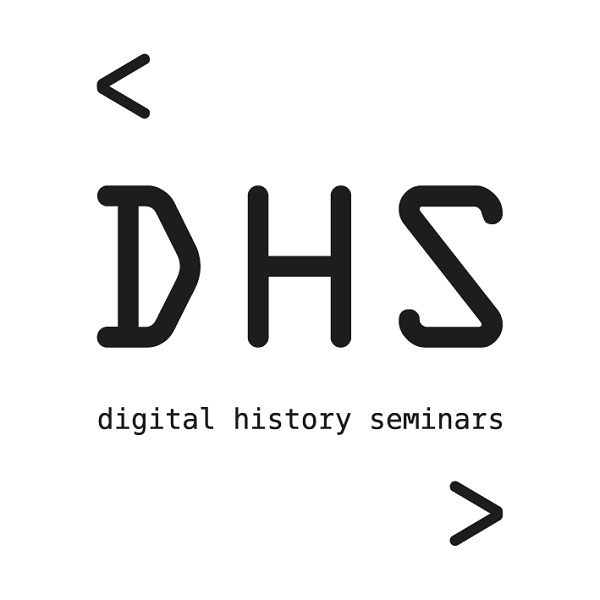
Семінар цифрової історії
7 грудня 2018 року відбудеться міжнародний семінар "Проект цифрової історії: як це працює". Учасниками семінару будуть дослідники та вчені з України, Люксембургу та Італії.
Семінар спрямований на обговорення потреб та цілей у проектах цифрової історії, що, у свою чергу, визначає різні конфігурації акторів та компетенцій, актуальних для проектів цифрової історії. Йтиметься про колективний характер та інституційну роль, координацію та підтримку цифрових проектів, міждисциплінарний підхід, технічну базу і візуальну мову, цифрові компетенції авторів та аудиторій.
Акселерація змін у цифрових технологіях робить їх постійно застарілими. Відбувається оновлення обчислювальної потужності пристроїв, зміна інтерфейсів, мов програмування і форматів файлів. Водночас не існує одностайної думки про те, чи сприймати оновлені версії як нові. Оскільки базові способи взаємодії між людиною і технологією залишаються у тих же концептуальних рамках. Відтак, коли проекти гуманітарного спрямування намагаються знайти інноваційні підходи до використання цифрових інструментів, вони мають справу з технологією, що постійно втрачає актуальність, і при цьому не обов’язково містить концептуальні інновації порівняно зі своїми попередніми версіями.
Це піднімає питання про те, як формується запит на створення проектів цифрової історії, кого вони включають, і хто ініціює ці процеси. Чи обчислювальний метод вважається можливістю сформувати інші технологічні рамки для формування знання у полі гуманістики? Чи цю йдеться передусім про необхідність йти в ногу з останніми технологіями? Чи можемо ми розділяти згадані два аспекти? Чи слід радше дивитися на міждисциплінарну природу цих відносин?
Це наштовхує гуманістику на питання про те, які цілі ставляться до цифрових проектів? І яким є підхід до оцінки їхньої успішності та ефективності? Як це працює? Коли можемо вважати такі проекти достатньо цифровими? Що таке дослідження, а що таке результат у проекті цифрової історії? Що є доданою вартістю та як оцінювати експерименти із застосування технологій в гуманітарних науках? Яку роль відіграє інтерфейс? Коли саме вважати користувацький досвід і статистику відвідувань ключовим результатом? Чи вважати проект цифрової історії завершеним після публікації? До цих запитань звертатимуться учасники семінару.
Робоча мова семінару - англійська.
Семінари з цифрової історії Центру міської історії обговорюють методологічні, етичні і теоретичні питання створення, збору і аналізу цифрових чи оцифрованих фотографій та відеозаписів як свідчень про минуле та світи, у яких жили чи живуть люди. Також семінари зачіпають питання просвітницького призначення історичних візуальних даних, які використовуються для створення змістовних презентацій і лекцій для різної аудиторії. Мета семінарів - дискусія про існуючі можливості і виклики цифрової історії між дослідниками.
Семінари мають три основні блоки:
* Артефакти (фотографії, файли, фільми, тощо)
* Технології (камера, антена, екран, друк, програма, тощо)
* Візуальні та цифрові методи (смисл і аналіз)
Подія реалізована в рамках "Семінарів цифрової історії" Центру міської історії Центрально-Східної Європи за підтримки Університету Санкт-Галлена (Швейцарія).
Центр міської історії Центрально-Східної Європи 7 грудня 2018 р., Львів, Україна
Вул. Акад. Богомольця, 6
Організатори:
Центр міської історії (Львів, Україна)
Центр урядування і культури в Європі Університету Санкт-Галлена (Швейцарія)
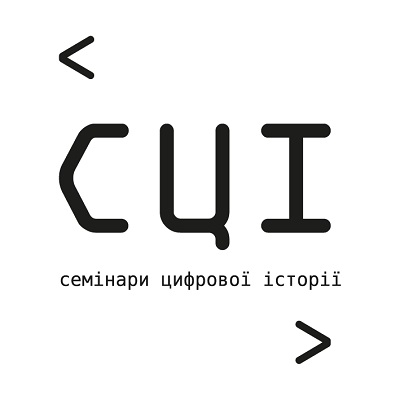
Програма семінару
7 ГРУДНЯ, П’ЯТНИЦЯ, ЦЕНТР МІСЬКОЇ ІСТОРІЇ
Міждисциплінарність
1. Координація (10:00-11:30)
Переклад колекцій: Досвід кураторства історичної багатошарової цифрової виставки про Велику війну
Сандра Камарда (Центр сучасної і цифрової історії, Університет Люксембургу)
Під час виступу пропонується досвід процесу розробки цифрової платформи «Перша світова війна: пам’ять про Першу світову війну у Люксембурзі». Наголос буде робитися на викликах, пов’язаних з налагодженням зв’язків між численними музейними установами та іншими стейкхолдерами, а також йтиметься про питання переклад аналогових колекцій на цифрові відповідники.
Багатошарова структура, разом з новітніми стратегіями у цифровому сторітелінгу, запропонує метод залучення різних аудиторій, заохочення дослідження і створення значущих навчальних досвідів.Львів Інтерактивний: окреслення досвідів у цифровому картуванні Тарас Назарук (Центр міської історії)« Інтерактивний Львів» є проектом з представлення історії міста через цифрову карту, який постійно триває і наповнюється вже понад 10 років. Водночас, це не просто історія опублікованих дослідницьких праць з акцентом на міські студії. Це також історія нашарування досвідів знанесення історичних досліджень на карту, міжгалузевої співпраці та використання цифрових інструментів, документація та аналіз яких є ключовим кроком до формування експертизи і пропонування підходів у полі цифрової історії. У презентації пропонується критичні рефлексії про набутий досвід, а саме – роль міжгалузевої співпраці, можливості і обмеження цифрових форматів, ключову роль експериментів у створенні проектів цифрової історії.
Від даних до інформації: як розуміти взаємозв’язки
2. Дослідження (12:00-13:30)
Антропос – Топос – Тропос: від гіперкниги до уявної мапи
Данило Ільницький, Віктор Мартинюк
(Український католицький університет, Інститут українознавства НАН України)
У презентації йтиметься про вплив інтелектуального середовища на вибір методу, про обраний метод як універсальний ключ у гуманітарному дослідженні, про деякі сильні і слабкі сторони нелінійної оповіді.
Картування Великої Війни у Києві
Олена Бетлій, Анна Ісаєва, Дарина Подгорнова
(Національний університет "Києво-Могилянська Академія", Центр міської історії)
Проект має на меті показати міське життя через призму Великої Війни. Під час презентації ми обговоримо виклики, пов'язані з дослідницькою стратегією, вибором перспектив, з яких Київ як місто домашнього фронту може бути пояснене у найбільш надихаючий спосіб. Також пропонується обговорити метод картування як інструмент, що допомагає історикам краще розповісти їхні історії про місто.
Гуманістика і осмислення взаємозв’язків (формування знання)
3. Програмування та візуалізація (14:30-16:00)
WW1.lu, перед і поза лаштунками.
Сторітелінг та кураторство даних для «спливаючих» колекцій
Даніеле Ґвідо (Центр сучасної і цифрової історії, Університет Люксембургу)
Створення проекту цифрової історії, коли доводиться працювати з оцифровані архівними матеріалами та їхньою публікацією є не просто лінійним процесом, як може видатися на перший погляд. Йдеться не лише про цифрові формати, авторське право, переклади, різні архівні практики, метадані та роботу з контентом, а й про взаємозалежність між дослідниками, перекладачами, розробниками і дизайнерами, з урахуванням особливих потреб і побажань кожного з них щодо даних, моделювання даних, курування і публікації. Ми хотіли б розповісти про наш підхід до проекту ww1, про проблеми, з якими ми зіштовхнулися, про суспільно- технічні рішення, які ми запропонували: від підготовки метаданих ресурсів, публікації у веб, і до написання мізансцен для історичних матеріалів.Дизайнерський підхід до проектів цифрової гуманістики Джорджо Убольді (Calib.ro)Виступ має на меті поглибити стосунки між дизайнерами, вченими-гуманітаріями та програмістами, представивши деякі проекти та інструменти для аналізу гуманістичних даних та для допомоги у науково-дослідній діяльності.Переведення знання у 'розуміння патернів'
4. Освітнє (16:00-17:30)
Історична інформатика і цифрова історія для студентів університету історичних спеціальностей
Євген Захарченко (Навчальна лабораторія історичної інформатики, Харківський національний університет ім. В.Каразіна)
У презентації розглядається діяльність навчальної лабораторії історичної інформатики Харківського національного університету ім. В.Каразіна. Буде розглянуто, як історична інформатика і цифрова історія викладаються для студентів-бакалаврів, які методи і практики
вони вивчають, які форми навчання допомагають їм здобути навички у цих сферах; які можуть бути потенційні проекти і перспективи для подальшого застосування цифрової історії в навчальному процесі на історичних факультетах.
(ви)жити в 1990-х. Спроба зрозуміти, як створювати цифрову освітню платформу
Христина Бойко (Центр міської історії)
(ви)жити в 1990-х – це освітня платформа для вчителів і учнів на основі проекту «Інтерактивний Львів», розроблена та створена учнями у співпраці з дослідниками, дизайнерами, програмістами і перекладачами. У доповіді буде представлено досвід апробації методу «навчання через дію», можливості цифрової гуманістики, застосування гейміфікації для нелінійного сторітелінгу. Ми розповімо про виклики при створенні цього проекту, обговоримо основні цілі та завдання розробки освітньої платформи, як знайти спільну мову, яка стане корисною для цільової аудиторії та створить простір для спілкування різних учасників
освітнього процесу.
Публічна лекція (18:30)
Центр міської історії, конференц-зал
Пам'ять про Велику війну в Люксембургу: залучення різної аудиторії через цифрові проекти публічної історії
Сандра Камарда (Центр сучасної і цифрової історії, Університет Люксембургу)
Затінена драматичними подіями Другої світової війни, складна і неоднозначна історія Люксембургу під час Першої світової війни постраждала від загальної байдужості і відсутності інтересу як з боку істориків, так і місцевого населення.
Ініціативи вшанування сторіччя Великої війни стали безпрецедентною нагодою знову заглибитися в цей період як на науковому, так і на політичному рівнях. Результатом співпраці Університету Люксембургу і Міністерства з державних питань став проект цифрової виставки «Éischte Weltkrich»: пам’ять про Велику війну в Люскембургу», який звертається до різної аудиторії, прагнучи переосмислити все ще малодосліджену і знехтувану епоху.
ДЕТАЛІ: http://www.lvivcenter.org/uk/conferences/conferences/2962-07-12-18-digital-what-makes-it-work/
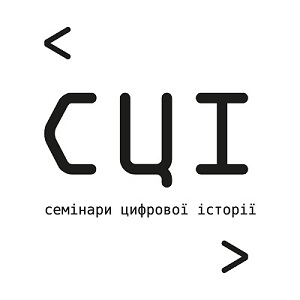

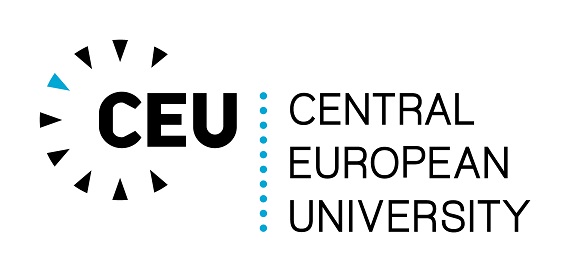
Come to study towards a US accredited MA degree in cultural heritage research, policy, and management in the Budapest and Vienna campuses of CEU, in the heart of Central Europe. You have a good chance to receive a scholarship / dormitory / tuition waiver package. CEU is an international, English language university, ranked among the top 50 young universities worldwide. Deadline: 31 January 2019.
CEU’s Cultural Heritage Studies 2-year MA Program combines theoretical approaches to cultural heritage with practical knowledge through fieldwork and internships at heritage organizations. The result is hands-on, thorough academic training that prepares future heritage experts and practitioners with a critical understanding of the historical, social, policy and management aspects of tangible, intangible, and environmental heritage.
Who can apply?
Our students come from a variety of backgrounds, with at least a BA in any field related to cultural heritage, such as historical studies, art history, archaeology, the creative and performing arts, architecture and urban development, sociology, anthropology, international relations, and management. Proof of English proficiency is required.
How to apply?
For detailed information, visit the website.
What will you study?
Students can choose from two streams: Academic Research and Protection of Cultural Heritage and Cultural Heritage Management and Policy. We offer courses on
- Heritage project and event management
- Intangible cultural heritage and memory
- Legal protection of cultural heritage
- UNESCO World Heritage
- Sustainable heritage management
- Ethical issues, intellectual property
- GIS applications
- Digital documentation and publication
- Crowdsourcing and socialmedia
- Cultural and heritage policy development
- Presenting heritage in written and oral genres in English
Who are we?
Our faculty’s expertise crosses borders and disciplines, including anthropologists specializing in African and American cultures, international heritage law experts, and historians and archeologists with experience in European and Asian projects. The program has a strong accent on Central European heritage with a global perspective.
Where will it take you?
Graduates typically find jobs at research bodies, governments, international organizations, heritage institutions, NGOs, and tourism industry, where they utilize the subject-specific knowledge and network we offer, combined with skills such as complex problem solving, strategic thinking, management, teamwork, presenting and communication as well as cognitive flexibility.
Why CEU?
- Students and faculty from 115 countries
- English as the language of instruction
- 7:1 student/faculty ratio
- Alumnion 6 continents in top positions
- Acommunity committed to academic freedom and open debate
- Innovative, multidisciplinary academic environment
- Favorable financial conditions (full and partial scholarships, tuition waivers)
Apply by
January 31, 2019 for master’s studies with financial aid
May 1, 2019 for self-financing master’s studies
Have questions?
Write us at culther@ceu.edu
Find us on Facebook @CultHerCEU
CEU today and tomorrow
Find out here how recent changes to Hungary’s higher education legislation may affect future CEU students. In all circumstances, you can apply to CEU with confidence and look forward to studying for a master’s or doctoral degree in a welcoming and world- class academic community!




